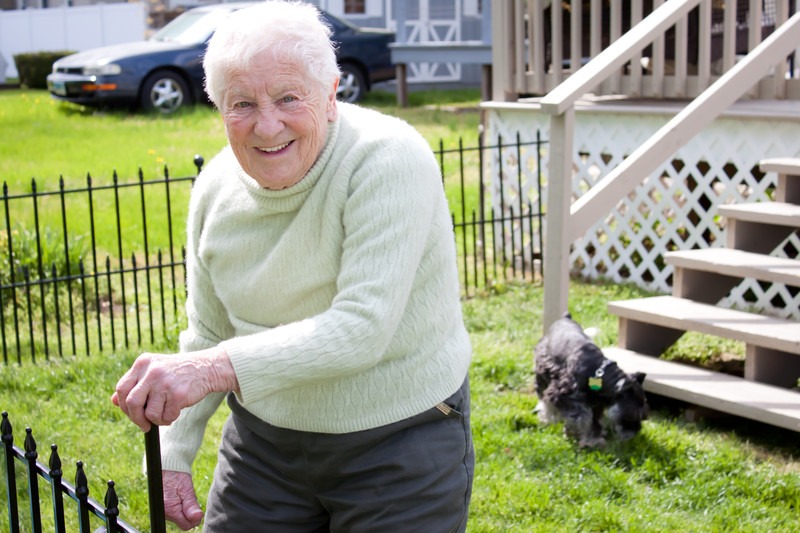As more seniors are being diagnosed with dementia and Alzheimer’s, safety in the home becomes an important factor.
Dementia and Alzheimer’s impairments can include:
- Judgment – such as forgetting how to use household appliances
- Memory – such as forgetting to turn off the stove, or lock the doors
- Sense of time and place – not being able to recognize familiar areas or objects in the home
- Behavior – becoming fearful or suspicious
- Sensory deficits – changes in hearing, vision, and increased sensitivity to temperature changes
The following suggestions may help keep your loved one safe in their home. First, walk through the home as if you didn’t quite understand what things are. What objects, if memory lapse occurs, could cause harm? What sharp corners on tables, clutter, absence of handrails, poor lighting could be a contributing factor to a fall or harm to themselves?
As the disease progresses, there are further concerns for those seniors who are at home being taken care of by family.
- If wandering is a concern, you may want to move the deadbolt or door lock, either very high or very low. Make sure there is an extra set of keys readily available for a neighbor to use in case of emergency. You may want to install a door alarm as an auditory reminder that the door is open.
- Your loved one should have an emergency response button on them at all times. Make sure they have identification in their purse or wallet.
- Keep areas well lit, not only inside the house, but pay attention to the exterior as well. Walkways, garages, and stairs should have adequate lighting, with the switches easily accessible. On stairways, switches should be available at both the top and bottom of the stairs. Lamps can be set on timers so they come on and off at regular times. Consider motion detector lights for exterior or even interior spaces. Make sure cords are not a trip hazard.
- Place medications in a locked cabinet. You may want to organize medications in a pill box organizer, or even obtain a pill dispenser that only dispenses the dosage needed at the scheduled times.
- Remove clutter, especially from stairs and hallways. Remove any breakable items from shelves or tables. In case your loved one falls, those items will not be a breaking hazard.
- Check the refrigerator and cupboards often for food that has spoiled. If the stove is a hazard, it can be unplugged or disconnected.
- Set the water temperature at 120 degrees or less to prevent scalding. You may want to consider touch faucets that can be pre-set at the desired temperature for added safety.
- Make sure smoke alarms are installed and working. There should be one on each level of the home, and one near the kitchen.
- Post emergency phone numbers in conspicuous locations – near the phone, on the refrigerator, on the inside of the doors to the home.
- If driving is a concern, remove the keys, or even the car from the home.
- If basement access is an issue, install a door, gate or half door with a locking mechanism to discourage access and a falling hazard.
- Consider hiring a home care organization for tasks including cooking, cleaning, laundry and transportation, or simply for companionship.
- Be PROACTIVE. Make a list of all your loved ones’ favorite foods, their favorite ways that they like their food served, and also, their favorite colors. These things will come in handy when they cannot speak for themselves. Interview home care agencies before you need them. That way, when it’s time to call, you are not burdened with the ordeal of your loved one needing help, and you have to spend time talking to numerous agencies.
Even if your loved one is in the early stages of the disease it’s recommended that they are not left alone for very long. A family buddy system that they can be checked on at least two-three times per day can bring about peace of mind for all.











